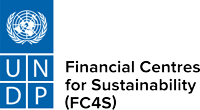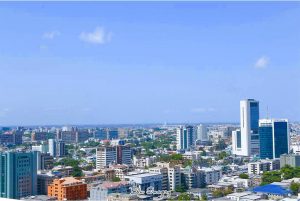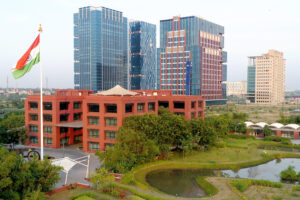FC4S is delighted to invite its financial centres and their associated institutions to a dedicated series of webinars on “Methodologies and tools for Paris Alignment”, which will showcase mainstream and freely available climate finance methodologies and tools for the financial sector and include user experiences with each of them. This series of webinars will focus on three initiatives: PCAF (the Partnership for Carbon Accounting Financials), SBTi (the Science Based Targets initiative) and PACTA (Paris Agreement Capital Transition Assessment).
Participants will be able to engage with representatives from these climate finance initiatives to fully understand the role that each initiative plays in the overarching process to reach Paris alignment. The main takeaway for participants will be a sense of clarity on what their next steps should be to align their financial institutions with the Paris Agreement.
AGENDA
Considering time differences, each webinar will be held at two different times to make this a global event. All of the workshops will be in English, will last approximately one hour, and will include a user experience and a Q&A Section.
1st Workshop – Introduction & PCAF overview.
Introduction to the Strategic Framework for Paris Alignment and the interconnectedness of climate initiatives on the path to Paris alignment and PCAF overview.
September 22nd at 17h CET (West time) – Inscription Link
September 23rd 10h CET (East time) – Inscription Link
2nd Workshop – PACTA overview
September 29th at 17h CET (West time) – Inscription Link
September 30th at 10h CET (East time) – Inscription Link
3rd Workshop – SBTi overview
October 4th at 17h CET (West time) – Inscription Link
October 7th at 10h CET (East time) – Inscription Link
ABOUT THE INITIATIVES:
- PCAF is a global partnership of financial institutions that work together to develop and implement a harmonized approach to assess and disclose the greenhouse gas (GHG) emissions associated with their loans and investments. More than 110 financial institutions from over 35 countries and representing more than USD$29 trillion in total financial assets have joined the initiative and committed to measuring and disclosing their financed emissions. PCAF participants work together to jointly develop the Global GHG Accounting and Reporting Standard for the Financial Industry, the only universal, standardized, and transparent methodology to measure and disclose the GHG emissions of loans and investments that is built on and marked by the Greenhouse Gas Protocol.
- PACTA has been developed by 2 Degrees Investing Initiative in conjunction with a wide range of partners. It is an open source and free online tool that assesses the alignment of your corporate bond, loans, and listed equities exposure to eight economic sectors, covering roughly 75% of GHG emissions. The tool compares what needs to happen in sectoral climate transition pathways with financial actors’ exposures to companies in these sectors and their 5-year forward looking production plans, allowing for a dynamic, scenario-based and forward-looking approach. The tool is extended by a stress-testing module which assesses the influence on assets’ prices of various climate scenarios. PACTA has also established itself as a model for financial supervisors and central banks to run scenario analysis and climate stress tests.
- Science Based Targets (SBTi) develops tools and provides technical assistance to facilitate the adoption of meaningful and ambitious science-based targets. It assesses and approves companies’ targets, helping financial institutions to translate the level of GHG emissions and targets of their investee companies to a Temperature Score and assess their status of emission reduction to build Paris-aligned portfolios. The Temperature ratings aim to translate targets into a single common and intuitive metric linked to the long-term temperature outcomes associated with the ambition of the target, enabling users to rate ambition at various levels.










































